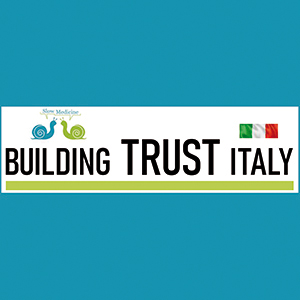Organizational actions to tackle distrust: Building Trust Italy

All claims expressed in this article are solely those of the authors and do not necessarily represent those of their affiliated organizations, or those of the publisher, the editors and the reviewers. Any product that may be evaluated in this article or claim that may be made by its manufacturer is not guaranteed or endorsed by the publisher.
Authors
According to the Italian Code of Medical Deontology, mutual trust and mutual respect for values and rights are the care relationship foundation. To establish reciprocal trust and respect, the communication between care providers and patients must be skilled and appropriate, and the time devoted to communication must be considered time of care. But in Italy, in the last decades costs containment policy in the organizations of the National Health Service critically shortened the time available for care. Today, doctors and other healthcare professionals literally do not have the time to establish appropriate care relationships, and this causes a widespread and increasing distrust of patients and their families in the care system. During COVID-19 pandemic also vaccine hesitancy, defined by experts as a delay in acceptance or refusal of vaccination despite availability of vaccination services, was mainly due to a lack of confidence in care system and in scientific research. Slow Medicine ETS, an Italian proactive movement of healthcare professionals and citizens, following the example of the initiative ‘Building Trust’ recently activated by the ABIM Foundation in the USA, launched a national initiative aimed to promote and plan concrete actions to restore and consolidate people’s trust in healthcare professionals and organizations, in researchers, in scientific and rational approach to knowledge and in its use for the improvement of health and quality of life. Slow Medicine ETS, still successfully leading and supporting the ‘Choosing Wisely Italy’ project, will be engaged in assembling the national network of the new project ‘Building Trust Italy’.
How to Cite

This work is licensed under a Creative Commons Attribution-NonCommercial 4.0 International License.
PAGEPress has chosen to apply the Creative Commons Attribution NonCommercial 4.0 International License (CC BY-NC 4.0) to all manuscripts to be published.






